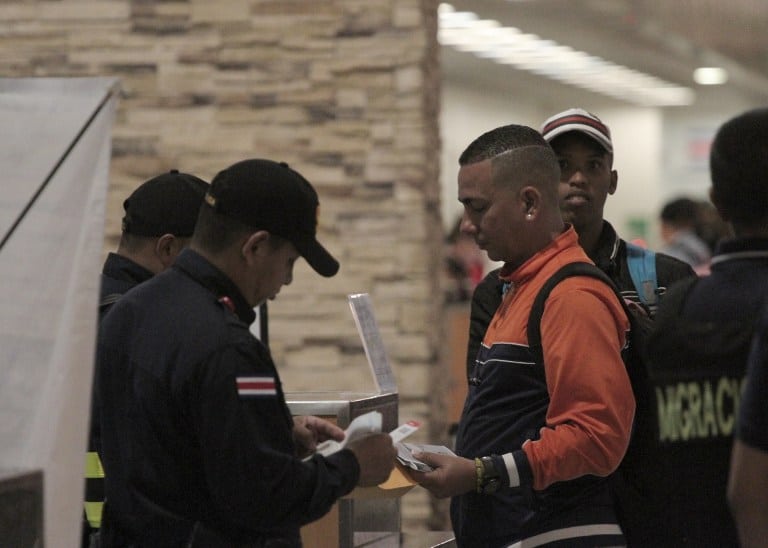Panamanian officials apparently dropped a group of 71 unwanted Cubans at the Panama-Costa Rica border Thursday in an operation highlighting a pass-the-buck strategy between Central American countries struggling to stem the flow of U.S.-bound migrants.
The Cubans were driven by bus from a holding center in the east – where they had been kept since crossing into Panama from Colombia – to the Costa Rican border in the west, local media reports in Panama said.
Panamanian officials did not confirm they organized the transfer, but one of the Cubans told the Panamanian newspaper La Estrella they had been woken at dawn to board waiting buses. Panamanian President Juan Carlos Varela told reporters the Cubans had to leave the country or face deportation to Cuba or Colombia.
Costa Rican Communication Minister Mauricio Herrera told AFP that the Cubans would not be permitted entry. Any found illegally crossing into the country would be returned to Panama, he said.
But the head of the UN’s International Organization for Migration in Costa Rica, Roeland de Wilde, said half the Cubans had already entered the country on Thursday.
“We have reliable information that indicates the Cubans have entered Costa Rica with human smugglers,” he said.
The IOM urged migrants “not to put themselves at risk through the dangerous smuggling business,” he added.
Central American corridor
Central America is a corridor for Cubans and other migrants trekking overland to try to get to the United States.
Some 25,000 Cubans passed through the region in 2015. Since then, their obstacles have since greatly increased.
Nicaragua closed its border to undocumented Cuban migrants in late 2015, forcing Costa Rica, then Panama – both upstream of the migration flow – to follow suit. In January, the United States scrapped a decades-old policy giving Cubans preferred immigrant status. Hundreds have since been deported.
Although the numbers passing through Central America have decreased, Costa Rica and Panama, both relatively stable and prosperous, fear they may become alternative destinations for Cubans.
The two countries are also increasingly concerned that Venezuelan migrants could arrive in even greater numbers, fleeing a collapsing economy at home.
Panama has already tightened entry requirements for Venezuelans.






